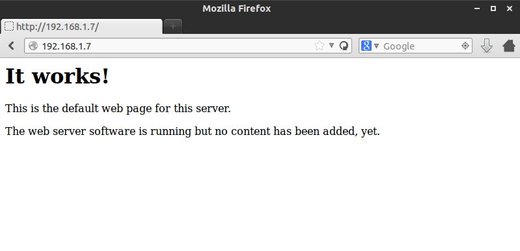Linux is a Unix-like and POSIX-compliant operating system. Ubuntu is one of popular Linux distributions.
Apache is a HTTP web server, the most popular in use. It serves webpages when they’re requested by the web browsers. When you type an URL on your web server and press Enter, the pages you see on screen is most likely served by Apache webserver.
MySQL is a database management system now owned by Oracle Corporation. It stores and organizes references to the information the webserver needs.
PHP is a reflective programming language, which makes it possible for all these different parts to work together.
Tutorial Objectives:
- Install LAMP Stack in Ubuntu 13.10 Server
- Enjoy!
To get started, run single command below to install them:
sudo apt-get install lamp-server^
While the installing process, you’ll be prompt to set a password for MySQL root user.
To check out if Apache is working, type http://ubuntuserverip in client web browser or localhost in the local browser:
To check out if PHP is working, run command below to create a test php file in root of Apache webserver directory:
sudo vi /var/www/info.php
Press i to start editing, and type in following lines:
<?php phpinfo(); ?>
After that, press Esc to exit editing. Press Shift + : and followed by wq and Enter to save the changes.
Now, type http://ubuntuserverip/info.php in client’s browser or localhost/info.php in local browser, you’ll see:
Scroll down to find out if there’s a section about Mysql, it means that Mysql is working too!
Now your LAMP server is up and working, see how to install wordpress in Ubuntu 13.10.
